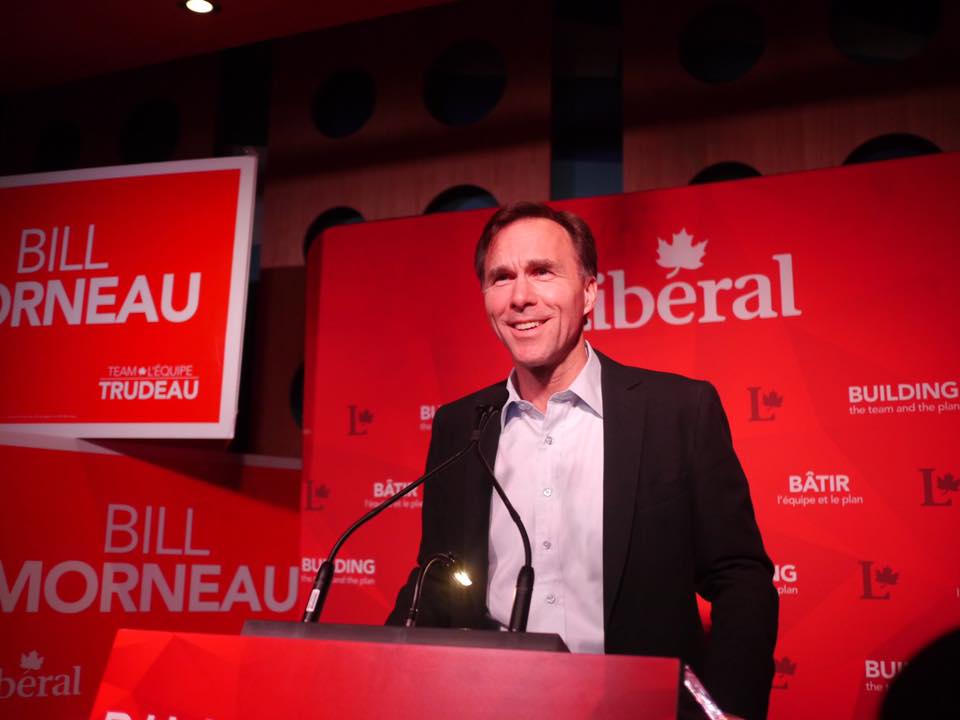
The COVID-19 crisis is the challenge of our generation. The Government of Canada has responded with rapid and broad-based emergency support measures to protect the health and economic well-being of Canadians.
Today, Finance Minister Bill Morneau presented an economic and fiscal snapshot. The federal government has used its strong fiscal position to stabilize the economy and support Canadians by putting in place the largest economic aid package in generations.
While the toll of COVID-19 on the broader economy in 2020 is expected to be the largest and most sudden economic contraction since the Great Depression, measures to flatten the pandemic curve in Canada are paying off, and efforts are underway across the country to safely and gradually reopen the Canadian economy. The actions and investments of governments across Canada to date have helped us get this far. But the road towards recovery remains long and uncertain. Today, and in the months to come, our economic health will largely depend on our public health.
Canada’s COVID-19 Economic Response Plan is ensuring Canadians have the support they need to put food on the table and keep a roof over their head. Representing nearly 14 per cent of Canada’s gross domestic product (GDP), the Plan includes more than $230 billion in measures to protect the health and safety of Canadians and provide direct support to Canadians, businesses and other employers, and up to $85 billion in tax and customs duty payment deferrals to meet liquidity needs of businesses and Canadian families.
With comparatively low levels of debt, the Government of Canada has the room to borrow and support the Canadian economy. In fact, even given Canada’s increased borrowing needs due to the COVID-19 response, public debt charges are expected to fall in 2020-21, as a result of historically low borrowing rates.
Through responsible fiscal management, the government is building a bridge from an emergency to a safer place where we can build a more resilient economy for the future.
The government will continue to ensure Canadians are supported through this crisis and stands ready to take additional actions to mitigate the impacts of the pandemic.
Quotes
“The COVID-19 pandemic has had a major impact on the social and economic well-being of Canadians in every part of the country. For many it has meant lost jobs, lost hours and lost wages. Our government has understood, from the moment this pandemic began, that it was our role to step in to support Canadians and stabilize the economy. Our investments have meant that Canadians and Canadian businesses, instead of drowning in debt and closing up shop, will be better positioned to get back at it. As economies gradually and safely reopen, we will continue to ensure that Canadians have access to the support they need.”
– Bill Morneau, Minister of Finance
Quick facts
- Today’s economic and fiscal snapshot noted that:
- As businesses and many sectors of the economy closed or curtailed their activities as a result of the pandemic, the Canadian and global economies took a severe hit. In Canada, 5.5 million Canadians – 30 per cent of the workforce – either lost their jobs or saw their hours significantly scaled back over March and April.
- Private sector economists expect an annualized decline of over 40 per cent in Canada’s real GDP in the second quarter of this year. They expect the economy to contract by 6.8 per cent in 2020 as a whole, its sharpest drop since the Great Depression, before rebounding by 5.5 per cent in 2021.
- There are now growing signs that the worst of the economic shock is behind the Canadian economy, as the gradual and safe reopening of the economy continues. The shape of Canada’s economic recovery is uncertain and highly dependent on public health.
- The decisive and substantial support provided through the government’s economic response plan helped prevent further costly damage to the Canadian economy by replacing the more than $40 billion lost in labour income, preventing the contraction in real GDP to reach over 10 per cent in 2020 and the unemployment rate to rise by a further 2 percentage points.
- The temporary measures implemented through the government’s economic response plan will have a significant impact on the federal deficit. Coupled with the severe deterioration in the economic outlook, these result in a projected deficit of $343.2 billion in 2020-21.
- While this year’s deficit estimate is elevated, the government’s response is in line with the fiscal response deployed by other comparator countries. Coming out of the crisis, Canada is expected to maintain its low debt advantage among G7 countries. The government’s commitment to maintaining this advantage will help ensure that future generations are not burdened with COVID-19 related debt.